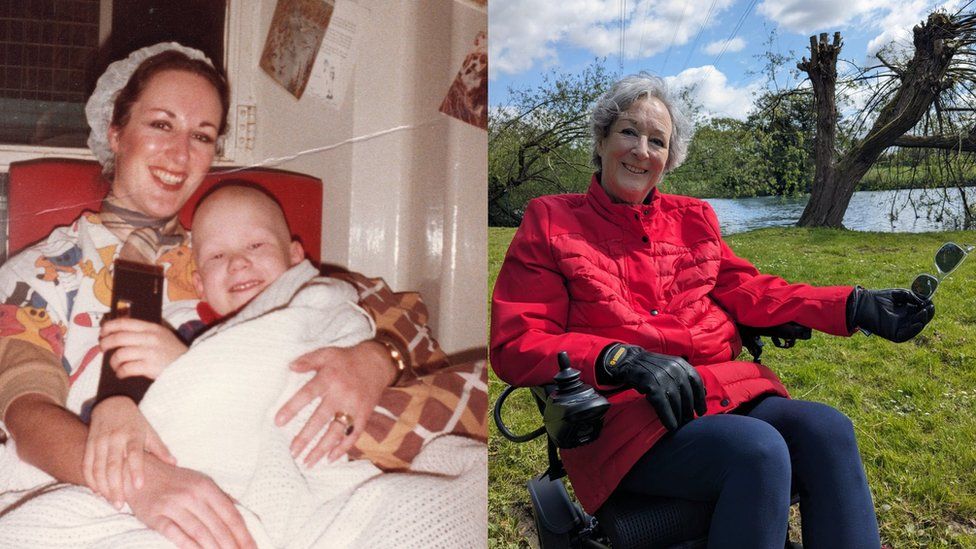Assisted dying: Mum with cancer shares support following son's death
- Published

Antonya Cooper has incurable cancer - her son Hamish died in 1981 after being diagnosed with neuroblastoma
A mother who lost her seven-year-old to cancer who now has her own terminal diagnosis has shared her support for assisted dying.
Antonya Cooper, 77, from Abingdon, Oxfordshire, wants to legalise assisted dying so human death is not "so intolerably inhumane".
The government remains neutral on the issue.
Ms Cooper's son Hamish died in 1981 aged seven years old after being diagnosed with stage 4 neuroblastoma.
Neuroblastoma is a rare cancer that mostly affects children.
Assisted suicide - intentionally helping another person to end their life - is banned in England, Wales and Northern Ireland, with a maximum prison sentence of 14 years.
Opponents to changing the law say it is to protect the vulnerable and ensure that nobody is pressured into dying sooner than they might otherwise.
She said Hamish's death was like an "amputation" that she would "never get over"
Neuroblastoma is a rare cancer that mostly affects children
Ms Cooper, who helped launch Neuroblastoma UK, said Hamish was five-years-old when diagnosed, and given a prognosis of three months.
He subsequently underwent 16 months of treatment at Great Ormond Street Hospital (GOSH) which "ruined parts of his body" but extended his life, she said.
Seeing the side effects of the "beastly treatment" was heart-breaking, but she said GOSH staff were "so embracing" and supportive.
Ms Cooper said Hamish's death was like an "amputation" that she would "never get over", but helping launch the neuroblastoma charity helped her cope.
Four decades after Hamish's death she has been diagnosed with breast cancer, and more recently pancreatic cancer, which has spread to her liver and is incurable.
She said she was "realistic about the probability of dying" but that Hamish's suffering and her own diagnosis had cemented her feelings on assisted dying.
Antonya Cooper wants to legalise assisted dying so human death is not "so intolerably inhumane"
Ms Cooper, who has had four more children, has since joined Swiss assisted dying organisation Dignitas, organised her own funeral, and selected the plot where she wants to be buried.
MPs recently carried out a parliamentary debate on assisted dying, discussing whether a change in the law is necessary.
In response Ms Cooper said: "The whole point of assisted dying is to be able to seek a kind end for yourself if you know you're going anyway, and not to be wracked with pain and not to be testing the facilities of some local loving hospice."
If you have been affected by any of the issues in this story, the BBC Action Line has links to organisations which can offer support and advice
Follow BBC South on Facebook, external, X, external, or Instagram, external. Send your story ideas to south.newsonline@bbc.co.uk.
Related Topics
- Published29 April